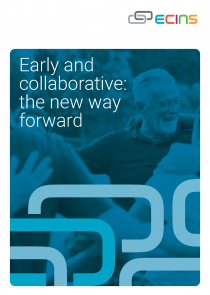On 21st November 2017 Nottingham City Council’s Community Protection (CP) dept’ Safer Housing Team and Tasking & Intelligence Team, along with CP funded Nottinghamshire Police Officers and the HMRC supported a Gangmasters & Labour Abuse Authority (GLAA) led operation to identify and support potential victims of modern slavery at hand car washes in the city of Nottingham.
The CP Intelligence Team developed an intelligence package identifying 30 hand car wash businesses in the city and graded them according to risk using Nottinghamshire Police and City Council held intelligence.
The CP Intelligence Team along with the GLAA lead investigator undertook intelligence scoping and briefing exercises with colleagues that led to formal planning meetings with partners and the development of an operational order identifying the roles and responsibilities of participating teams and agencies. The multi-agency team involved Nottingham City Council, Community Protection Safer Housing, Community Protection policing, UK Border Control, HMRC and Nottinghamshire Police Modern Day Slavery Team, Supporting materials, team briefings and other details were all hosted on E-CINS, the problem profiles and operational documents were linked to nominal profiles and pre- prepared cases for each of the locations to be visited, therefore officer form different agencies could all access the same information on different systems form different locations and update or set up nominal profiles and associated case logs in real time
The GLAA led a joint briefing and attended four hand car washes with partner teams. One victim of modern slavery was identified and entered the National Referral Mechanism (NRM) while the Safer Housing Team issued an Emergency Prohibition Notice on one car wash facility being used illegally for accommodation and a further address which was identified through the operation. HMRC found causes of concern at all four businesses and has commenced investigations.
A great deal of further intelligence was developed and passed into the ECINS partnership data sharing system and into the Nottinghamshire Police NICHE intelligence system.
Jordan Cashmore, E-CINS Organisational Admin at Nottinghamshire Police said “The GLAA wanted to look at typical business types that don’t need to be licensed or registered to see if they were high risk Modern Day Slavery premises. We put together intelligence from Community Protection and Council systems and found 63 premises which then needed to be assessed further to see how high risk they were. To rate them we used data such as those premises previously being found to have people being exploited or not permitted to work in the UK. We eventually drilled it down to 4 premises that the GLAA wanted to inspect as high risk premises for MDS.
“We decided to use ECINS because of the way it was already being utilised by the Complex Persons Panels/Vulnerable Persons Panels and we adopted the same process. This is a relatively new prototype way of using ECINS and we did it in an effort to see if we can utilise it for broader MDS work. The GLAA wanted a system which all three agencies could look at in real-time, and whilst at the premises. They wanted to be able to look at live data, update it in real-time and hold all the information in one place and ECINS worked very well for this.”

How ECINS was used:
A master/parent case was created with the operational order that the GLAA produced – this explained everything involved including what will happen to victims and perpetrators.
Each of the 4 premises had their own case which was linked to the Master Case as a Subcase. Each premises had a map with the premises location so officers could find it easily. Each of the cases had all of the intelligence related to those premises in Reports – this intel was from Police and Councils and contained the Debrief of the visit afterwards – what they found, what the issues were, what was done after the completed visit.
Profiles of linked people – anyone found linked to the business in intelligence were put in on linked intelligence and anyone found on the premises was put on to the case as a linked profile. Each of the profiles had reports of that individual, the intelligence they had on that person and what their link is to the business premises on a separate report.
Afterwards, reports of the summarised details of the interviews with each of the people that were there was added to ECINS. Everyone was interviewed and the officers had hard copy paper questionnaires that were supplied by the GLAA. The interviewer filled out the form with pen – questions included details of bank accounts, are they transported by home address, are they allowed to access their bank account, are they allowed to go free or are they transported from place to place, how much are they paid, do they have a contract etc. All of this was summarised on the report with key details and a scan of the completed questionnaire was also put into a document of the profile on ECINS.
The operation proved the value, indeed the necessity of joint working between partners and achieved the key moral outcome of protecting victims. The operation generated positive media coverage further raising public awareness of the issue of modern slavery and its connection to other offending such as exploitative and dangerous housing practices.
Further multi-agency operations are on-going in different business areas all using ECINS, currently Nottinghamshire has 27 different agencies across statutory and non-statutory bodies using ECINS to support work including but not limited to:
ASB
Early Help/Early Intervention
Integrated Offender Management – IOM
MARAC
Safeguarding
Troubled Families
Vulnerable Persons
Multi-agency tasking & Problem solving
Crime Reduction
Enviro crime
Licensing – Premises/vehicles
Rough Sleepers/Street Drinking
Staff safety/Risk Register
Victim Services/Victim Gateway
Positive drug testers in Custody


